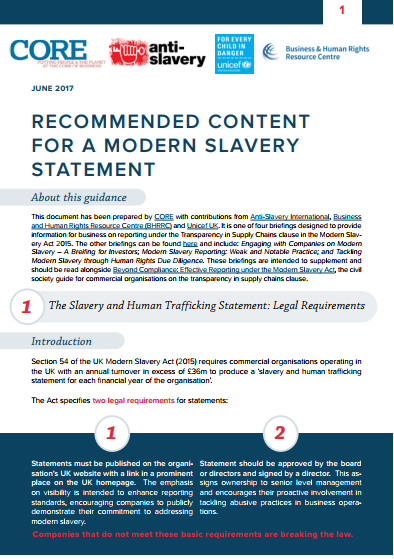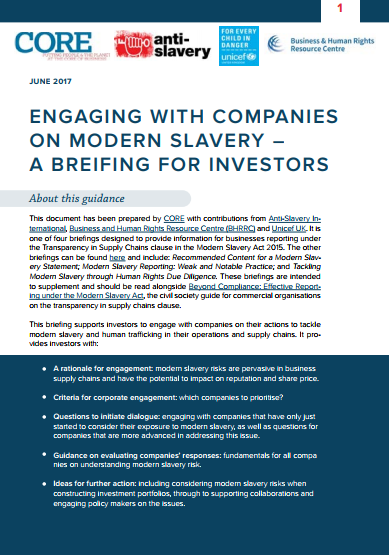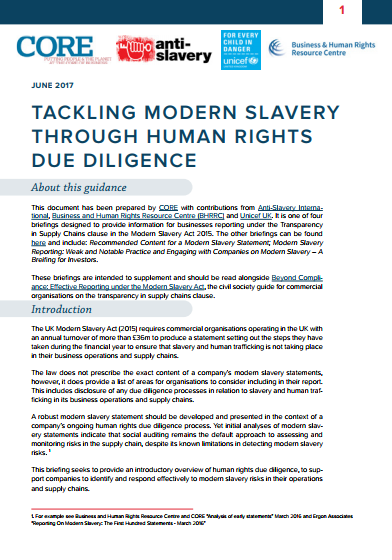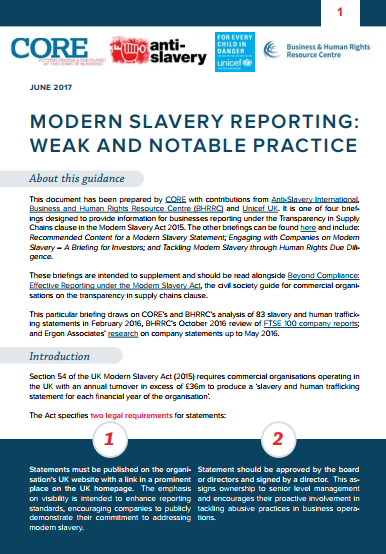Under the Transparency in Supply Chain clause of the Modern Slavery Act, all companies with a turnover of more than £36m operating in the UK are required to publish an annual statement setting out what they have done to eradicate slavery and human trafficking from their supply chains and operations.
CORE supported the introduction of this requirement and in 2016 published Beyond Compliance, a guide for business on reporting under the Act. This guidance has been well received by business, but to date, most published statements indicate that companies have a limited understanding of the requirements of the Act and of concepts such as human rights due diligence.
To help address this, CORE has worked with Anti-Slavery International, Unicef UK and Business and Human Rights Resource Centre to produce three shorter briefings for businesses to complement the comprehensive guidance, and a briefing for investors.




